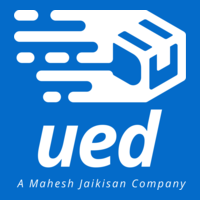commercial Feasibility
It refers to the assessment of a project’s potential for profitability and market success. It evaluates whether a product or service can be launched and sustained in the market.

Overview
Production Feasibility
Production feasibility focuses on evaluating the technical and operational aspects required to bring a product to market. This includes a thorough technical assessment of the processes, technologies, and equipment necessary for production. It’s essential to analyze the required production capacity to meet anticipated market demand, ensuring that the operations can scale appropriately. Site analysis plays a crucial role, as the location impacts logistics, access to resources, and compliance with regulatory requirements. Additionally, a comprehensive cost estimation should be conducted, taking into account materials, labor, equipment, and overhead expenses. Finally, risk assessment is vital to identify potential challenges in the production process and develop strategies to mitigate those risks, ensuring a smoother implementation.
Commercial Feasibility
Commercial feasibility revolves around understanding the market landscape and determining the project’s financial viability. It begins with an in-depth market analysis to assess the target market’s size, growth potential, and prevailing trends. Competitive analysis is also crucial; it involves identifying key competitors, evaluating their strengths and weaknesses, and understanding their market share. Sales projections must be created to estimate potential sales volumes and revenue, considering the competitive dynamics. Financial viability analysis is important to assess profitability, cash flow, and return on investment (ROI) through careful financial modeling. Lastly, understanding regulatory considerations is essential, as legal requirements can significantly impact the commercial aspects of the project. Together, these elements provide a comprehensive view of the project’s potential success in the market.
Benefits of Services
Production feasibility evaluates the technical and operational requirements for manufacturing a product, including capacity, site analysis, and cost estimation, while assessing risks. Commercial feasibility focuses on market analysis, competitive landscape, sales projections, financial viability, and regulatory considerations, together determining the project’s overall viability and potential success in the market.
- Technical Assessment
- Capacity Analysis
- Site Analysis
- Cost Estimation
- Risk Assessment
- Commercial Feasibility
- Market Analysis
- Competitive Analysis
- Sales Projections
- Regulatory Considerations
Engineering Consultancy
Turnkey Engineering Projects
Industrial design and Architecture
Factory Audit and Quality assurences
Engineering Procurement and Sourcing
Engineering Manpower Sourcing
Sick Industry Running and Revival
Need Help?
Connect with us now to discover how our consultancy services can transform your ideas into successful projects.
Let's be great together
Commercial Feasibility for Industrial Projects
Deep industry knowledge to create tailored solutions that meet the unique challenges of each project.
Market Research & Analysis:
Research on demand, competition, and target markets , customer preferences, trends, and purchasing behavior.
Site Selection & Infrastructure Assessment
Locations transportation, real estate, and labor , infrastructure, including utilities, machinery, and technology.
Financial Planning & Cost Analysis:
Cost estimates for setup, operations, and maintenance . revenue forecasting, break-even analysis, and ROI evaluation.
Legal & Compliance Documentation:
Obtain necessary permits and licenses. Ensure adherence to manufacturing, safety, and environmental regulations.
F. A. Q
Common Questions
Your questions answered—streamlining industrial success with clarity and efficiency
A production feasibility study evaluates the technical and operational aspects needed to produce a product, including processes, equipment, capacity, and site considerations.
Capacity analysis helps determine the production volume needed to meet market demand, ensuring that operations can scale effectively and efficiently.
Site analysis considers logistics, availability of resources, regulatory requirements, and overall suitability of the location for production activities.
Market analysis involves researching the target market's size, growth potential, trends, and customer preferences to gauge demand for the product.
Competitive analysis helps identify key competitors, their strengths and weaknesses, and market share, providing insights into positioning and strategy.
A feasibility study is beneficial when considering a new project, product, or investment. If there are uncertainties about market demand, production processes, costs, or potential risks, conducting a feasibility study can provide valuable insights and help inform decision-making.
Cost estimation involves analyzing expenses related to materials, labor, equipment, and overhead to provide a comprehensive view of production costs.
Risk assessment identifies potential challenges in the production process and develops strategies to mitigate these risks, ensuring smoother operations.
A commercial feasibility study evaluates the market potential, competition, sales projections, and financial viability of a product or project.
Sales projections estimate potential sales volumes and revenues based on market conditions, helping assess the financial outlook of a project.
Financial viability involves assessing profitability, cash flow, and return on investment (ROI) through financial modeling to determine overall project viability.
Understanding regulatory requirements is crucial, as they can significantly impact the production and commercial aspects of a project, including compliance and legal implications.

